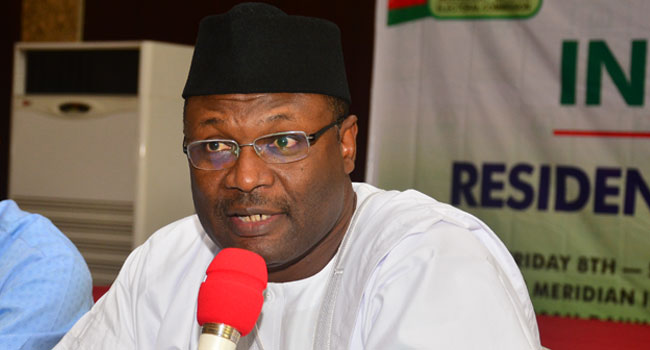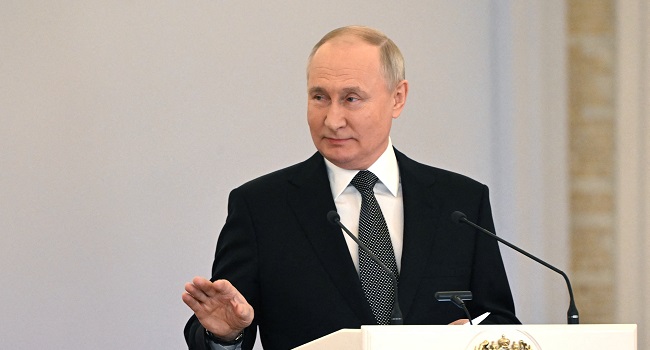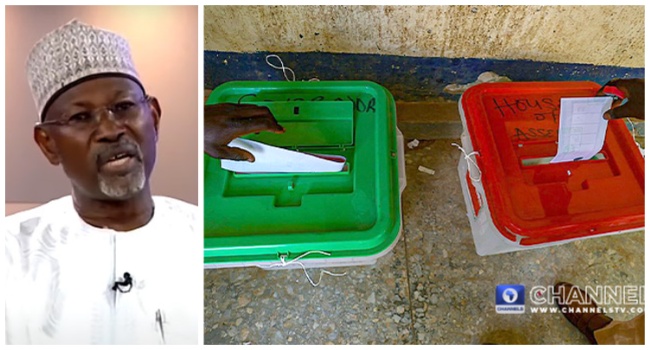
The Independent National Electoral Commission (INEC) has constituted two committees ahead of the general elections in 2019.
INEC Chairman, Professor Mahmood Yakubu, inaugurated members of the committees – Electoral Logistics and Collation Centre – at a meeting on Thursday in Abuja.
Addressing the meeting, he explained that the committees were set up to drive important components of the electoral process.
“The first Committee is responsible for electoral logistics,” the INEC boss said, adding, “The Commission is aware that the conduct of a General Elections is the biggest and most complex logistics operation a nation can undertake.”
He added, “Sensitive and non-sensitive materials procured by the Commission must be delivered to almost 200,000 locations nationwide, ranging from the polling units to the various ward, local government, state and the national collation centres for the 1,558 constituencies into which elections will be conducted.”
READ ALSO: INEC To Meet With ASUU, NLC Over General Elections
Professor Yakubu stressed that at the end of the elections, sensitive materials would be retrieved from the same locations.
He said the same process would be repeated for the Presidential and National Assembly elections holding on February 16, as well as the Governorship, State Assembly and Area Council elections in the Federal Capital Territory (FCT) on March 2.
According to the INEC chairman, the Electoral Logistics Committee will be responsible for coordinating logistics support as well as the clearance and transportation of election materials to various locations nationwide.
He stated that the committee comprised relevant security agencies whose roles were clearly defined in Section 29(3) of the Electoral Act 2010 (as amended).
“The second ad hoc committee, which is entirely internal to the Commission, shall be responsible for the national collation centre from where results of the Presidential election will be announced,” Yakubu said.
He informed the meeting that INEC would use the International Conference Centre (ICC) in Abuja, as was the case in 2015.
The INEC boss explained that the ICC would serve as the secretariat for collation of results and venue for the briefing of international observers and the media.
He said it would be accessible to agents of the 73 political parties fielding candidates in the presidential election.
A breakdown of the committees is given below;
Committee on Electoral Logistics
National Commissioner AVM Ahmed Tijjani Mu’azu (rtd) – Chairman
National Commissioner Engr. Abubakar Nahuche – Member
National Commissioner Malam Mohammed Haruna – Member
Central Bank of Nigeria – Member
Nigeria Customs Service – Member
Federal Airports Authority of Nigeria – Member
Federal Road Safety Corps (FRSC) – Member
Nigeria Immigration Service – Member
The Nigeria Police Force – Member
Nigeria Security & Civil Defence Corps – Member
The Department of State Services – Member
Nigerian Army – Member
Nigerian Navy – Member
Nigerian Air Force – Member
Director, Electoral Operations Department, INEC – Member
Director, Estate Works & Transport, INEC – Member
Director, Procurement INEC – Member
Director Stores – Member/Secretary
Committee on Collation Centre
National Commissioner Amina Bala Zakari – Chairman
National Commissioner Prof. Anthonia T. Okoosi-Simbine – Member
National Commissioner Barr. Festus Okoye – Member
Chief Technical Adviser to Hon. Chairman, Prof. Bolade Eyinla – Member
Chief Press Secretary to Hon. Chairman, Rotimi L. Oyekanmi – Member
Director, ICP Department, INEC – Member
Director, ICT Department, INEC – Member
Director, EPM Department, INEC – Member
Director, Security Department, INEC – Member
Director, P&M department, INEC – Member
Director, Health Services Department, INEC – Member
Director, Commission Secretariat, INEC – Member/Secretary



